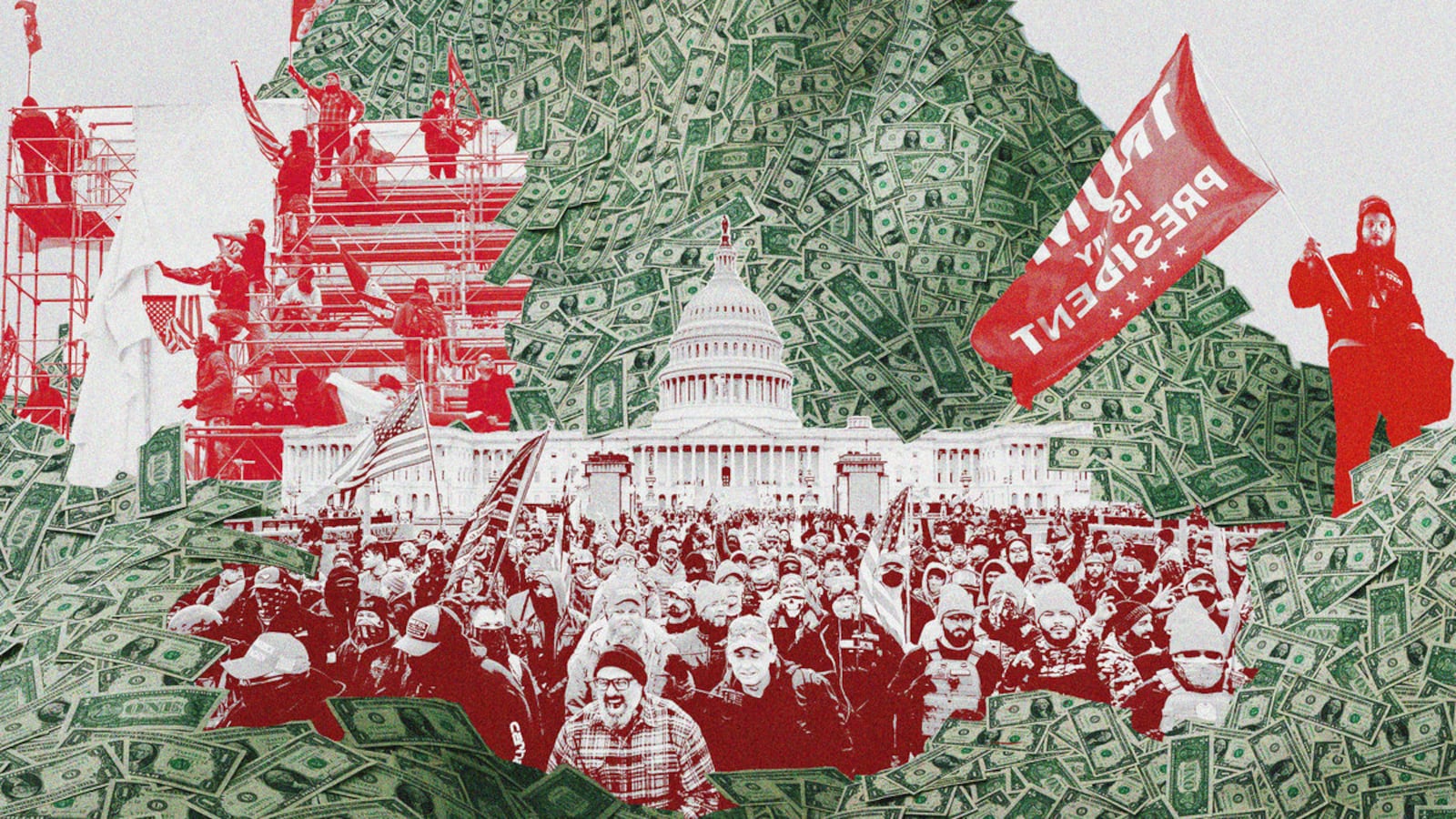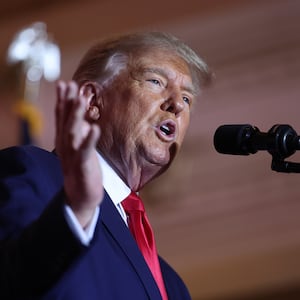In one of their final moves before they relinquish control of the U.S. House, Democratic lawmakers made sure to do something Republicans almost certainly never would: significantly expand the federal government’s resources to prosecute Jan. 6 rioters and counter domestic extremism.
Those two goals were codified in the 4,000-plus page, $1.7 trillion year-end spending legislation, known as the omnibus bill, which President Joe Biden is set to sign after its passage by both chambers of Congress.
It specifies that federal U.S. attorneys will get a $2.63 billion overall budget, an increase of $212 million—or 9 percent—from fiscal year 2022, in order to “further support prosecutions related to the Jan. 6 attack on the Capitol and domestic terrorism cases,” according to a House Democratic fact sheet.
The Federal Bureau of Investigation, meanwhile, will get an $11.3 billion budget for the coming year. That’s an increase of $570 million, or 5 percent, from last year, which House Democrats say is “for efforts to investigate extremist violence and domestic terrorism.” The figure is also a 5 percent increase from what Biden had asked for in his own 2023 budget request to Congress.
Overall, the omnibus increases the budget for the Department of Justice by 10 percent over fiscal year 2022.
It’s a pivotal moment for Congress to authorize that funding commitment, and not only because of the imminent transfer of power in the House. With the incoming GOP majority poised to shutter the Jan. 6 Select Committee and open up a raft of investigations antagonizing the DOJ, lawmakers secured this funding—no sure thing—well into the eleventh hour.
Nearly two years after Trump supporters stormed the Capitol, the federal law enforcement apparatus remains swamped with Jan. 6 cases and likely will remain so for years to come. The DOJ has called it “the most wide-ranging investigation” in its entire history.
So far, nearly 1,000 people have been arrested or charged with crimes for their actions that day, but hundreds of those cases are not yet resolved. Given that the DOJ estimates that as many as 2,500 people entered the Capitol on Jan. 6, charges are still likely to come in many more cases. In July, NBC News reported widespread concern within the ranks of federal prosecutors that they lacked the funding and “manpower” to handle the intensive workload.
Beyond that, the Capitol attack was emblematic of a broader trend of rising domestic extremism and terrorism gripping the U.S., a wave that the FBI is tasked with countering.
Democratic lawmakers welcomed the omnibus’s funding as a necessary step to ensure the federal government has the resources it needs to see the unprecedented task of the Jan. 6 prosecutions to completion, as well as preventing more extremist violence.
Rep. Elaine Luria (D-VA), who served on the Jan. 6 Select Committee, told The Daily Beast that the funds are “crucial to providing DOJ with the support, tools, and resources needed to prosecute these individuals successfully and secure justice.”
“It's my hope that this funding will be used by DOJ and the FBI to expedite justice in January 6th cases and identify and combat the growing threat of domestic terrorism in the United States to keep our communities safe,” Luria said.
While all but a handful of House Republicans voted against the omnibus, the legislation passed the Senate with 18 GOP votes, and several of those senators specifically expressed support for increasing the FBI budget.
The votes in favor of the omnibus, particularly its provisions to increase funding for Jan. 6 prosecutions, have infuriated many on the Trumpist right. Rep. Dan Bishop (R-NC), an archconservative Republican, included the provisions in a lengthy Twitter thread of allegedly unacceptable elements of the omnibus bill, and a number of conservative influencers have amplified the outrage. Mollie Hemingway, the Federalist opinion writer, also derided the DOJ funding in a piece attacking Senate Minority Leader Mitch McConnell (R-KY) over the omnibus.
Several outside experts contacted by The Daily Beast said that the increased funding for these federal efforts is significant. But Michael German, a fellow at the Brennan Center for Justice, argued that while Congress is prioritizing tackling the threat of domestic extremism, they have historically struggled in prodding federal law enforcement to do so, too.
Often, German said, the FBI’s definition of what constitutes domestic terrorism or extremism differs from Congress’, and usually in a way that allows right-wing actors to escape tougher scrutiny.
“The problem has never been a lack of resources or lack of authority to investigate white supremacists and far-right militants,” German said.
On going after Jan. 6 defendants, German said federal law enforcement has suffered from a “resource crunch” that has contributed to the delay in prosecuting some of the more egregious violations of the law.
“There’s still a lot of people who committed violence against law enforcement at the Capitol that day who haven't been charged yet,” he said.
Michael Lieberman, senior policy counsel for hate and extremism at the Southern Poverty Law Center, hailed the omnibus’s “unprecedented” levels of investment in DOJ’s capacity to counter hate-driven violence.
But Lieberman argued that Congress and the Biden administration need to “do much more” to stem rising extremism, and the SPLC intends to focus on whether they make good on their own anti-extremism and violence initiatives, as well as whether the planners, perpetrators, and financiers of the Capitol insurrection “are held accountable, with significant consequences.”
“The law is a blunt instrument to address hate and extremism,” Lieberman said. “We cannot arrest or prosecute our way out of this threat.”








